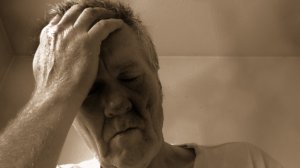
Belbuca is a prescription painkiller containing the active ingredient buprenorphine, an opioid. Belbuca is indicated for the treatment of severe around-the-clock pain. It is sometimes used when the patient is not responding to non-opioid pain relievers or immediate-release opioids. Belbuca comes as a film that is placed in the cheek lining where it dissolves.
Belbuca was approved by the Food and Drug Administration for this use in 2015. Belbuca’s main ingredient, buprenorphine is often used to treat opioid use disorder in addition to severe chronic pain. While buprenorphine’s structure is similar to other opioids such as oxycodone and hydrocodone, it works a bit differently.
Buprenorphine is a partial opioid agonist, meaning that while it does activate the same receptors as opioid drugs of abuse, it does so in a tempered way. Buprenorphine also has a ceiling effect – attempts to boost effects by increasing the dose won’t increase the drug’s impact beyond a certain point.
Side effects of Belbuca may include:
- Sleep disturbances, insomnia
- Headache
- Sweating
- Constipation
- Nausea and vomiting
More severe effects may occur with respiratory depression, including the following:
- Dizziness
- Loss of coordination
- Chest pain
- Labored, slowed, or shallow breathing
- Sexual problems
- Confusion
- Mood or behavioral changes
What Does Belbuca Look Like?
Belbuca is a small, square, yellow film that adheres to the buccal mucosa and is fully dissolved in about 30 minutes.
There are many Belbecua dosages available. These dosages include:
- 75 mcg
- 150 mcg
- 300 mcg
- 450 mcg
- 600 mcg
- 750 mcg
- 900 mcg
Is Belbuca Addictive?

Buprenorphine, the active ingredient in Belbuca, has a potential for addiction, despite its use as a treatment for opioid use disorder. Buprenorphine, like oxycodone and oxymorphone, is derived from thebaine, a chemical compound in the opium poppy, also known as Papaver somniferum.
Although buprenorphine is only a partial opioid agonist with a limit to its effects, it can cause mild euphoria in some people who use it. It doesn’t have the same risk of abuse as full opioid agonists, but like other opioids, it can also be liquefied and injected to increase the drug’s effects above those normally experienced when used as directed.
For this reason, Endo Pharmaceuticals, the maker of Belbuca, includes warnings with the medication, stating that it must be used as instructed by the prescriber and to not alter the dose. Also, people who use Belbuca should not chew, swallow, snort, or inject the drug – actions which can result in an uncontrolled delivery and overdose.
Dependence and Withdrawal Symptoms
While buprenorphine is often used as a way to help with substance abuse treatment, it can have its own adverse effects as well. Buprenorphine has the potential for addiction, and it can cause people to experience withdrawal when they cease use.
Withdrawal symptoms may be milder than other opioids, however, and may include the following:
- Anxiety
- Irritability
- Body aches
- Cramping
- Insomnia and sleep disturbances
- Sweating
- Dilated pupils
- Nausea and vomiting
- Diarrhea
- Drug cravings
These symptoms occur following a cessation of use because of the brain’s response to certain substances. Over time, neurons adapt to repeated exposure to a drug and become less able to function properly without it.
This is called dependence and can result in very unpleasant withdrawal symptoms when a user tries to quit or cut back. It is very often these symptoms that compel a person to re-establish use or relapse despite the desire to quit.
Belbuca Overdose
Because Belbuca binds to opioid receptors (albeit partially) misuse can result in life-threatening central nervous system (CNS) depression.
Risk factors for an overdose of Belbuca include:
- Chewing the film or trying to inject the drug
- Using Belbuca in a way other than prescribed
- Using Belbuca without a prescription
- Using more than one film dose at one time
- Using Belbuca without a current tolerance to opioids
- Using Belbuca recreationally to get high
- Using Belbuca with another opioid drug or heroin
- Combining Belbuca and other CNS depressants such as alcohol, benzodiazepines or prescription sleep aids
Signs And Symptoms Of A Belbuca Overdose
Signs of an overdose of Belbuca are similar to those of an overdose caused by other opioids. They may include the following:
- Pinpoint pupils
- Slow, shallow or labored breathing
- Blurry vision
- Dizziness
- Extreme drowsiness or nodding off
- Bluish tint to lips or fingernails
- Confusion
- Cold, clammy skin
- Weakness
- Unconsciousness/unresponsiveness
- Coma
- Death
An overdose caused by Belbuca, other opioids or CNS depressants is a medical emergency. If you or someone you know is experiencing the above symptoms after using any of these drugs, please call 911 immediately.
Treatment for Belbuca Addiction

Opioid addiction is most effectively approached when treated long-term in a specialized addiction treatment center. This includes both resident (inpatient rehab) and intensive outpatient (IOP) formats. Both tracks include behavioral therapy, counseling, group support, and aftercare services.
During rehab, patients reside at the center 24/7 for at least 30 days while receiving treatment and support. Outpatients live at a private residence and are given more flexibility to attend to personal responsibilities. Many inpatients opt for IOP after their residential stay has been completed.
Aftercare planning services help patient connect with resources outside the centers, such as psychiatrists, counselors and 12-step meetings for ongoing therapeutic services and support.
We provide a comprehensive, holistic method to treatment, encompassing a wide array of different evidence-based practices in combination. All of Midwood Addiction Treatment’s primary therapists are either licensed or master’s level clinicians.
Our programs are structured with various components of evidence-based treatment practices and holistic approaches to treatment that provide our patients with the knowledge and tools they need to be successful in their recovery.
If you or your loved one is suffering from substance abuse, please seek help as soon as possible.